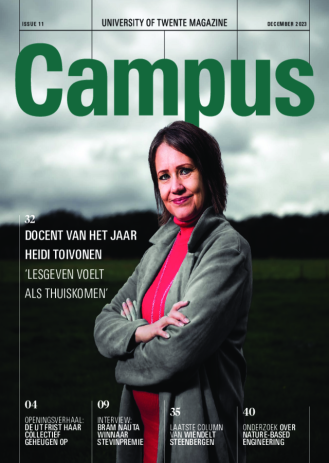‘I no longer work for the UT and am now getting my degree as a detective. Can you remove my name from that article from 2 years ago?’
‘I am applying for a job and everyone already knows me because they google my name. I am straight up being ridiculed. My name really needs to be removed from the archive.’
Two examples of e-mails that regularly reach the U-Today editors. And to get straight to the point: the editors only comply with this kind of request in very exceptional cases. Let me explain why.
First of all, an archive like that of the U-Today is extremely valuable. It gives a reliable, good and complete picture of the University of Twente’s history. It is not without a reason that our entire archive from 1963 has been digitised and housed at the Historical Centre Overijssel. If names (and events) are removed from the archive, we tamper with that reliability. We would be falsifying history. And besides: in the past, one cut away pieces out of paper archives either.
Of course we understand that your name ending up in a digital archive is different from being stuffed away in some dusty paper archive of the library. And we also understand that personal circumstances can change, such that ten years after your student days have passed you suddenly see your jolly statements to a journalist from a university newspaper in a different perspective than when you were downing ten beers in 't Gat in de Markt.
However, it is not the case that a (future) employer rejects you because of preppy statements. One recruiter told Observant, a university newspaper published by Maastricht University: 'Employers understand that it should be placed in the perspective of one’s the student life, they can see through that. Yes, if it were regarding photos that are really embarrassing and you are aiming for a diplomatic position, it can be more difficult. But as long as it is not too obscene, people really do see through it.' In short: they are also young and have often been students.
The occasional requests that we sometimes have doubts about, and seek advice from the editorial board on them, often have to do with certain sensitivities around positions. As in the first example, where a former UT employee is now studying to become a detective. Digital footprints are not done if you work for the police. And, of course, that also has to do with your own security. In this particular case, we removed the entire article, but that is quite an exception.
Emails with requests that don't even have a reason for removal or fall under the genre: 'I don't like it' or 'I demand that this be removed immediately' or 'I have a right to privacy' or 'I think the clothes I was wearing at the time are really ugly', are kindly replied to with the notion that we won't proceed with the removal.
In short, U-Today values the completeness of the archive. And we are not alone in this stance. Other Dutch media share similar notions, as can be observed by what the ombudsman of the NRC Handelsblad (a prominent Dutch newspaper, ed.] and the ombudswoman of De Volkskrant (another prominent Dutch newspaper, ed.) have written on the subject. The Netherlands Press Council has also issued rulings supporting this premise. You can, however, try filling in the so-called ‘right to be forgotten’ form of Google. If Google honours that request, you will no longer end up at the top of the search engine.






